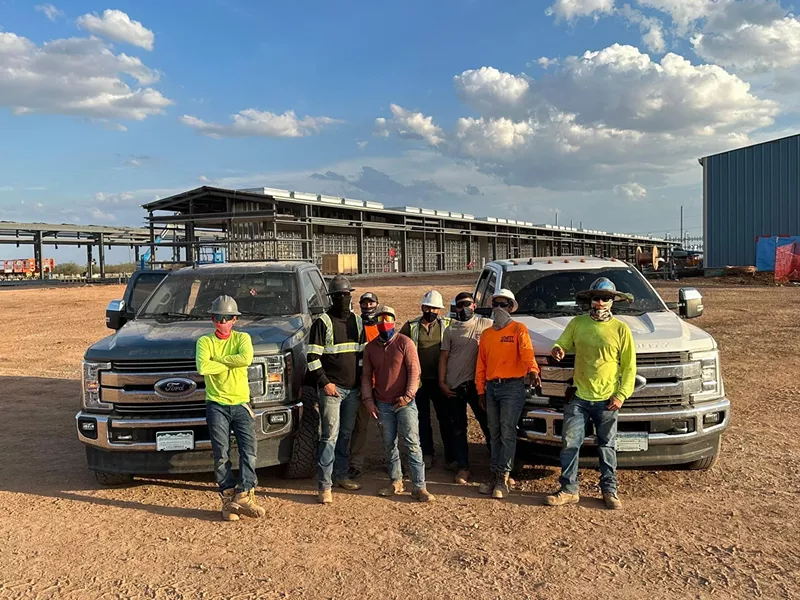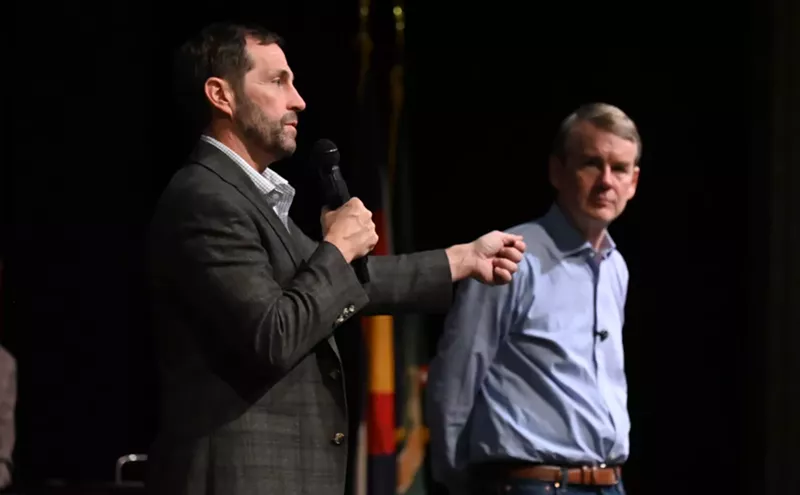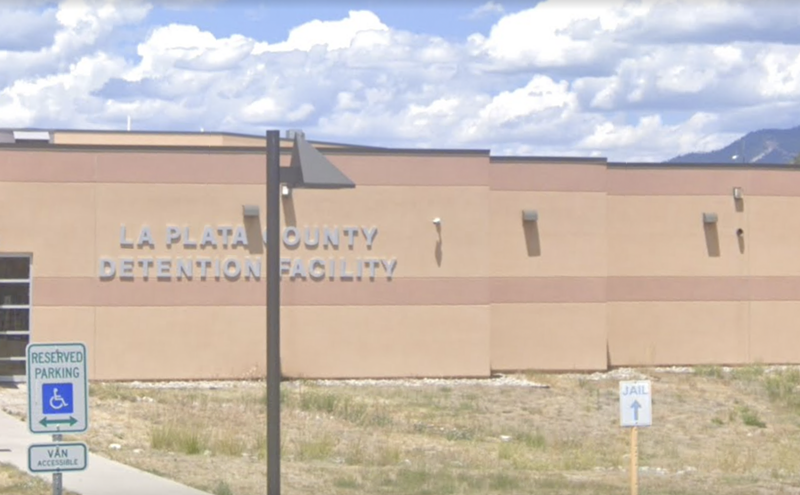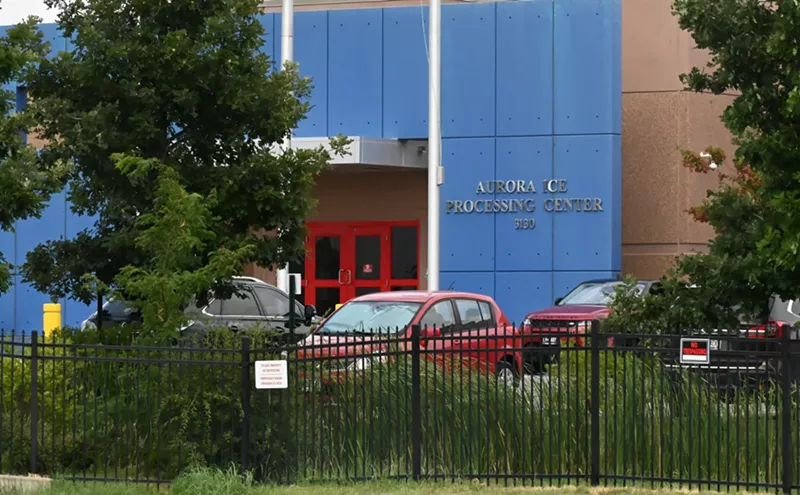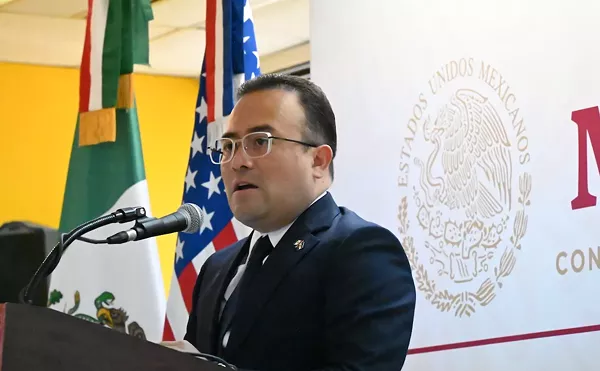America calls itself the land of opportunity, but what it really offers is opportunity for exploitation. That is especially true for undocumented immigrants. Every year, millions contribute billions of dollars to this country without receiving a single benefit in return. They pay taxes into systems they will never access. They build cities where they will never be safe. They support an economy designed to keep them out. And still, somehow, the question remains: Would legalizing them benefit the United States?
Not if you’re the one profiting from the current setup.
Undocumented immigrants are perfect for the economy. We do the jobs most people don’t want under conditions most would reject. Among us, there is a deep-rooted culture of gratitude: We are thankful for any opportunity, even when it comes with suffering. We don’t complain, because complaining risks everything. We don’t unionize, because we can’t afford to be seen. We don’t ask for health insurance, retirement plans, safe housing or a seat at the table. And all the while, the government collects our taxes and says nothing. Legalizing us would mean admitting we deserve more. It would mean recognizing our humanity and our right to live without fear. But that would also mean changing how the system works. And for those in power, the system is working just fine.
Worse still, undocumented immigrants are not only exploited but also blamed for job loss. Blamed for wage stagnation. Blamed for crime. Blamed for using public services they rarely qualify for. It is politically convenient to point fingers at us rather than face the truth. We become the perfect distraction. As long as immigrants are blamed for everything, the government can dodge responsibility for economic inequity, broken health care, underfunded schools and housing shortages. It offers shallow “reforms,” band-aids that pretend to heal wounds.
The longer immigrants remain undocumented, the longer these excuses remain useful. We become scapegoats for systemic failure. When people are busy blaming immigrants, they're not organizing around real problems. They're not looking up at the policies and power structures that created these conditions.
Legal status gives people power. It allows us to organize, vote, speak and demand. And demands require response. Politicians and power brokers know that if immigrants became fully visible, they would no longer be controlled easily. We would start changing policies, schools, health systems, housing markets and labor protections. Not just for ourselves, but for everyone. When one community rises, pressure grows for others to rise, too.
That is exactly what those in charge want to avoid. Equity is expensive for those who built their careers and profits on inequality. Keeping immigrants undocumented is a strategy. It delays reform. It preserves a labor force that fuels industries quietly, cheaply and efficiently. It lets America pretend to be compassionate while practicing exclusion.
Legalizing immigrants would not just grant legal protections, it would expose the country’s failure to care for its own working class. It would highlight gaps in health care, education, clean air, safe neighborhoods and mental health services. It would force a reckoning with the fact that these gaps are not accidents. They are designed. They are systemic. And they are deeply profitable for the few.
Immigrants help move the economy. We raise children, clean offices, pick food, build homes and care for the elderly. We do this without asking for more than the chance to live in peace. But peace comes with recognition. And recognition threatens the control that current systems depend on.
So no, legalizing immigrants doesn’t benefit the America we know today. Not the one obsessed with hoarding power, wealth and status. But it would benefit the America we claim to be. The one that says all people are created equal. The one that promises liberty and justice for all. The one immigrants still believe in, even when it refuses to believe in them.
The question is not whether we can legalize immigrants. The question is whether we are brave enough to become the country that deserves them.
Okany Rivas is a first-generation American with lived experience as an undocumented immigrant; she works at the intersection of public health and social justice.
On weekends, Westword.com publishes essays on matters of interest to the Denver community. Have one you'd like to share? Send it to [email protected], where you can also comment on this piece.

Audio By Carbonatix
[
{
"name": "GPT - Billboard - Slot Inline - Content - Labeled - No Desktop",
"component": "23668565",
"insertPoint": "2",
"requiredCountToDisplay": "2"
},{
"name": "STN Player - Float - Mobile Only ",
"component": "23853568",
"insertPoint": "2",
"requiredCountToDisplay": "2"
},{
"name": "Editor Picks",
"component": "17242653",
"insertPoint": "4",
"requiredCountToDisplay": "1"
},{
"name": "Inline Links",
"component": "18838239",
"insertPoint": "8th",
"startingPoint": 8,
"requiredCountToDisplay": "7",
"maxInsertions": 25
},{
"name": "GPT - 2x Rectangles Desktop, Tower on Mobile - Labeled",
"component": "24956856",
"insertPoint": "8th",
"startingPoint": 8,
"requiredCountToDisplay": "7",
"maxInsertions": 25
},{
"name": "Inline Links",
"component": "18838239",
"insertPoint": "8th",
"startingPoint": 12,
"requiredCountToDisplay": "11",
"maxInsertions": 25
},{
"name": "GPT - Leaderboard to Tower - Slot Auto-select - Labeled",
"component": "17676724",
"insertPoint": "8th",
"startingPoint": 12,
"requiredCountToDisplay": "11",
"maxInsertions": 25
}
]

